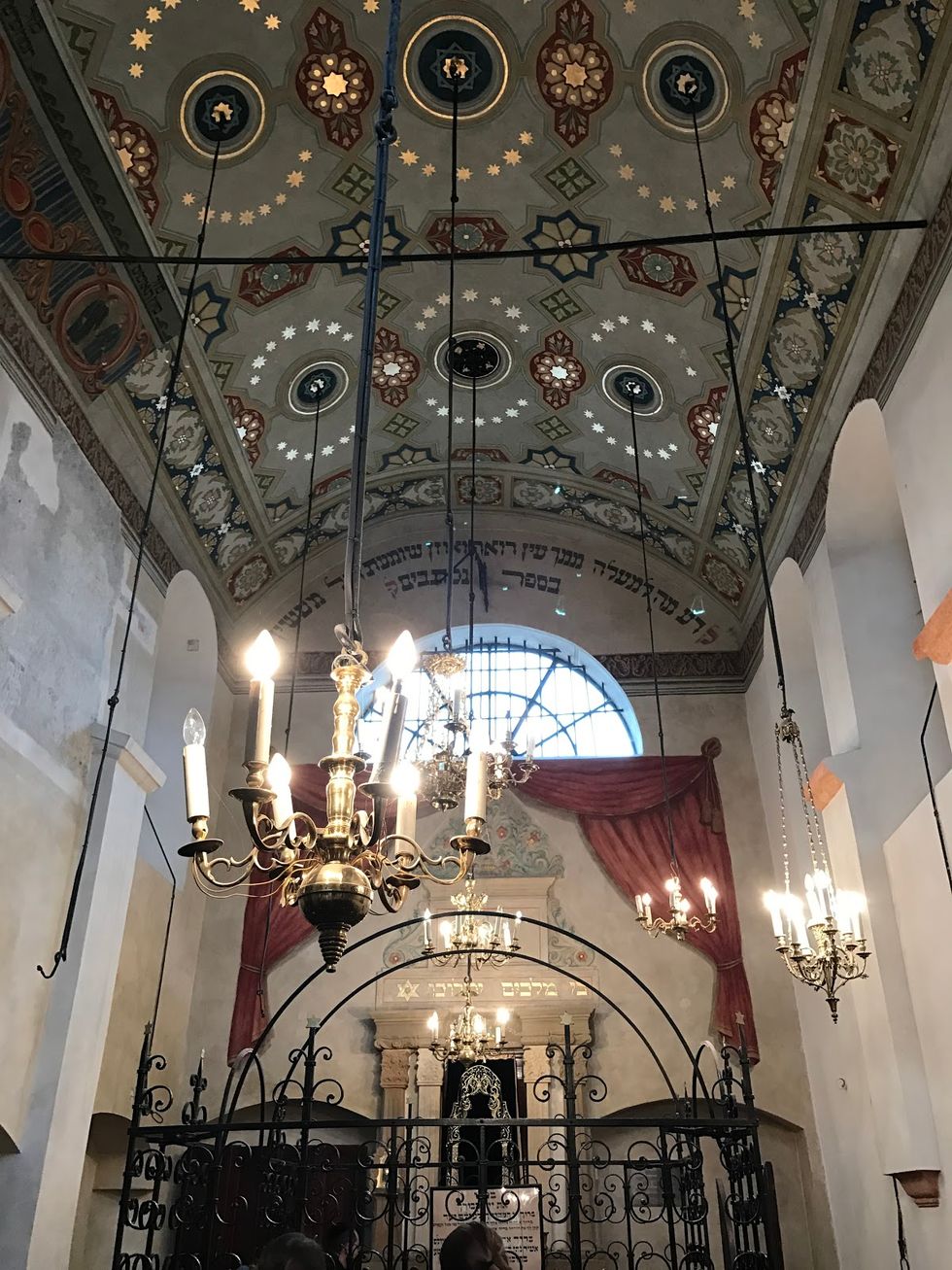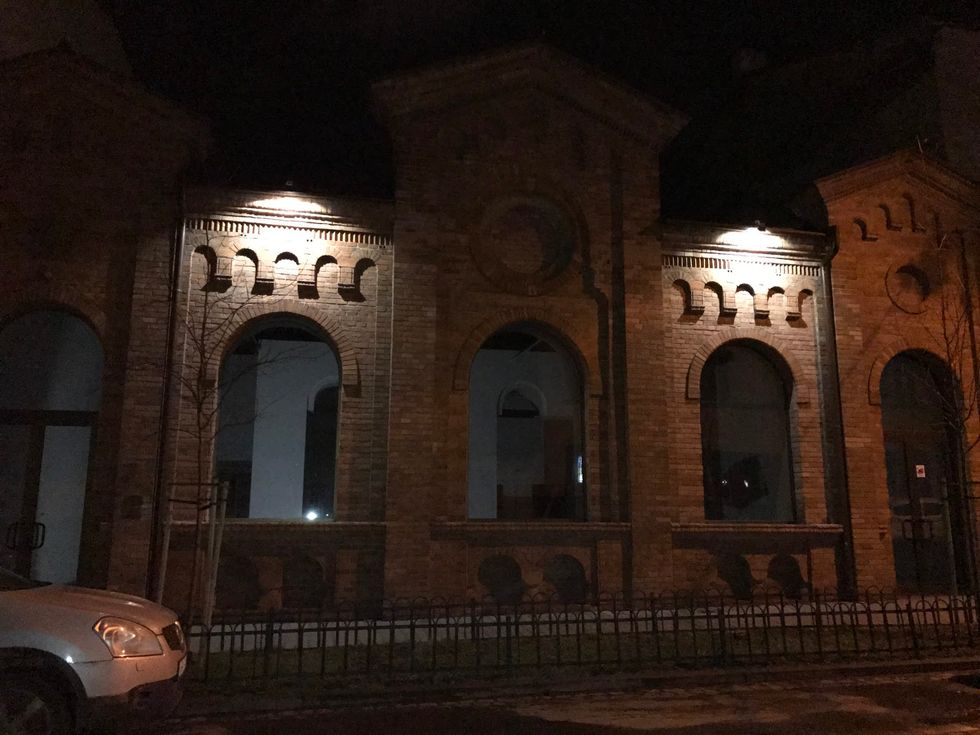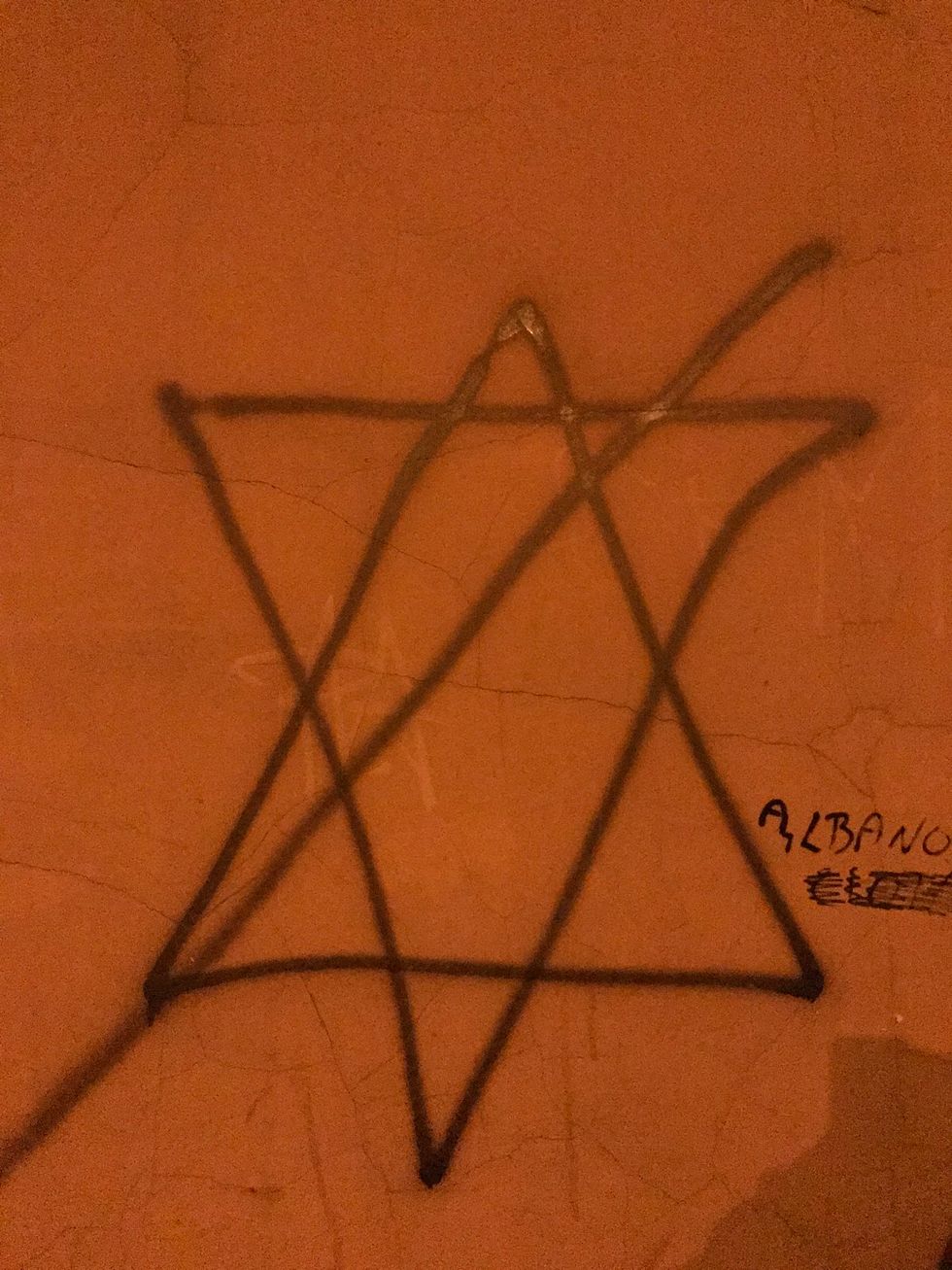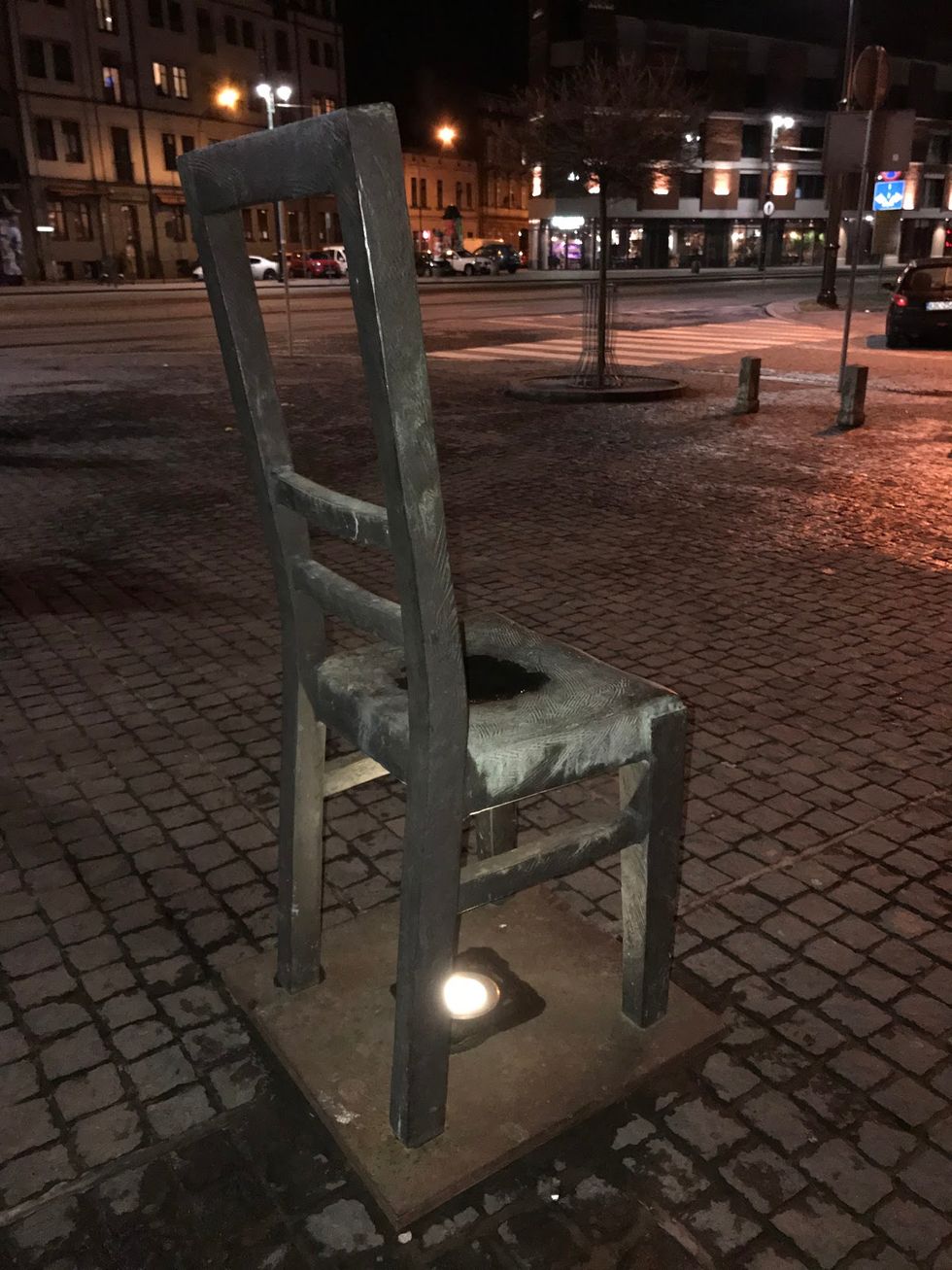I made it my mission not to do too much journaling on Shabbat because it’s the Jewish day of rest. And I did rest! For approximately 5 hours! But it was nice to take a small break from writing about the horrors of the Holocaust.
Don’t worry, though, I’m back now and ready to write! Here we go!
On the car drive to the Chicago airport (from where we flew to Poland), Rabbi Lazarus—the Jewish Learning Experience Washington University Rabbi—and I had a quality discussion about what was to come on the trip. He told me that on the Friday night, our group would be having an oneg where drinks would be provided. Knowing that I don’t drink, he told me not to worry, and said that drinking is actually beneficial to the group dynamic on the trip because it helps people open up about their emotions. I was skeptical, but of course, the wise Rabbi that he is, Rabbi Lazarus was completely correct.
Friday night, at the oneg, when we were all requested to give a little speech about our thoughts on the trip so far, I saw people really share their feelings. People discussed everything from their personal lives and why they decided to go to Poland to specific sites that made them cry to blessings for the group.
Something changed that night. Our separate lives seemed to blend into one story and all of our different ways of processing Poland combined into one, shared Poland Experience.
So the next morning, when we woke up for a small breakfast and then another breakfast?, I could feel people talking to each other more freely, for we had all forged a bond the previous night from visiting tragic Holocaust sites in Poland and discussing the meaning of our experiences together.
After our breakfasts, we went on a wongle (Rabbi Yitzhak’s term for a walk; he’s from South Africa and also a little crazy) to various synagogues in Krakow. They were all very close together, but each told a different story. One had a ceiling with astrological symbols, and I learned that Zodiac signs can correlate with a person’s characteristics but these aren't the only influence on who a person is. For example, someone whose sign is Mars, related to blood, could be a murderer or a surgeon; the Zodiac sign isn't the only thing that affects his/her life.
Another had a women’s section (balconies exclusively for women because they were not allowed on the main floor with men in Orthodox tradition) that was built after the synagogue was constructed. The evidence for this was in the fact that it bisected some of the windows and Hebrew writing on the walls of the synagogue, and Rabbi Yitzhak told us that it was built later because initially, women didn’t go to synagogue. Still a third synagogue offered a different take on Judaism. It was reform (which actually just meant less Orthodox because nearly all of the synagogues in the Jewish neighborhood in Krakow were Orthodox), and a non-Jew would play music in it on Shabbat (Jews cannot do “work” on Shabbat, which includes playing music).
After our wongle, we had Shabbos lunch, a small break, another meal that I feel obligated to call dinner (but it really wasn’t; it was more like lunch part 2), and then a nighttime tour of the Krakow ghetto.
The small ghetto, which was a very temporary and incredibly uncomfortable (to say the least) home for 20,000 Jews, housed 20 people per room and a whole lot of resilience.
With all of the tragedies that were befalling the Jews during the Holocaust, they fought back. Rabbi Yitzhak told us stories. One old man, whose kippah fell off when he was pushed down by an SS guard, put his kippah back on and stood up, only to have the incident repeat itself, for the guard did not want him to be wearing a kippah. Another man lied about his job, saying that he was a metal presser instead of an English teacher, so that he could be allowed to live. And the whole Jewish community banded together to continue to make and eat matza on Passover, keep Shabbat alive and their beloved cholent warm, house people in the synagogue in the ghetto, and disguise themselves as German soldiers, helping each other and Judaism survive.
It’s crazy to think that the Jews have been through so much as a people and have been so incredibly resilient against all odds. I left the ghetto feeling proud of my people, but I no sooner left the ghetto than saw this spray-painted onto a wall we walked past.
How does anti-semitism still exist? Who did this and for what purpose was this done? Why can’t the Jews just catch a break? I had so many questions.
As I stepped into the dim light of rows of lit chairs, the graffiti faded into the darkness in the background. I walked up to my group, and joined the circle we were making around one chair. The chair, a material possession, was alone and empty, for there was no Jew during the Holocaust to sit in it.








 Energetic dance performance under the spotlight.
Energetic dance performance under the spotlight. Taylor Swift in a purple coat, captivating the crowd on stage.
Taylor Swift in a purple coat, captivating the crowd on stage. Taylor Swift shines on stage in a sparkling outfit and boots.
Taylor Swift shines on stage in a sparkling outfit and boots. Taylor Swift and Phoebe Bridgers sharing a joyful duet on stage.
Taylor Swift and Phoebe Bridgers sharing a joyful duet on stage.













